Are Essential Oils Extracts
Essential oils have gained popularity for their various uses and benefits, but what exactly are essential oils myths?
In this comprehensive article, we will explore the different types of essential oils, how they are extracted, and their wide range of applications.
From aromatherapy to skincare, haircare, and natural remedies, essential oils have a multitude of uses.
Understanding the safety precautions, potential side effects, and proper usage of these powerful extracts is important.
Let’s dive in and learn more about essential oils and how to use them safely.
Key Takeaways:
What Are Essential Oils?
Essential oils are highly concentrated extracts derived from various plant sources, known for their aromatic and therapeutic properties. These oils are obtained through different extraction methods and contain bioactive compounds that offer a wide range of health benefits.
Originating from ancient civilizations like Egypt, Greece, and China, where they were used for rituals, perfumes, and medicinal purposes, essential oils have a rich history. The concentration levels can vary greatly, ranging from extremely potent oils like oregano or tea tree to more subtle scents such as lavender or chamomile. Not only prized for their pleasant fragrances, essential oils are celebrated for their antimicrobial, anti-inflammatory, and stress-relieving properties, making them versatile natural remedies for various health conditions.
What Are The Different Types Of Essential Oils?
There are various types of essential oils, each containing unique compounds and offering diverse therapeutic applications. These oils vary in concentration levels and are utilized for different health and wellness purposes.
Essential oils are typically classified based on the methods of extraction used to obtain them. One common classification is ‘steam distilled oils,’ which are extracted by passing steam through plant materials to collect the volatile compounds. These oils are known for their high concentration levels of active constituents and are commonly used in aromatherapy for their potent effects.
Another classification includes ‘cold-pressed oils,’ extracted by mechanical pressure without the use of heat. These oils are favored for retaining more of the plant’s natural aromas and are often used in skincare for their gentle and soothing properties.
How Are Essential Oils Extracted?
Essential oils are extracted from plant materials through various methods such as steam distillation, cold pressing, and solvent extraction. These processes ensure the preservation of aromatic compounds and bioactive components that contribute to the oils’ health benefits.
Steam distillation is one of the most common methods where plant material is exposed to steam to extract essential oils without compromising their delicate properties.
Cold pressing, on the other hand, is primarily used for citrus fruits, where the rind is pressed to release the oil.
Solvent extraction involves using VOCs like hexane to obtain oils from delicate flowers.
The significance of these methods lies in preserving the aromatic compounds intact, which are responsible for the therapeutic properties of essential oils. These compounds, such as terpenes and phenols, provide antimicrobial, anti-inflammatory, and relaxation benefits.
Steam Distillation
Steam distillation is a common method for extracting essential oils, involving the use of steam to separate volatile compounds from plant material. This process results in highly concentrated oils that are natural and free from synthetic additives.
During steam distillation, the plant material is subjected to steam, causing the volatile compounds to vaporize and rise. The steam and vapor mixture is then condensed back into liquid form, separating into water and oil. The oils obtained through this process are known for their purity, retaining the natural essence and therapeutic properties of the plants they are derived from. Due to the gentle nature of steam distillation, the integrity of the oils is preserved, ensuring a high quality end product with potent concentrations of aromatic components.
Cold Pressing
Cold pressing is a gentle extraction method used for obtaining essential oils from citrus fruits and certain seeds. This process ensures that the oils retain their volatile aromatic compounds and medicinal properties without the need for preservatives.
By gently pressing the raw materials without the application of heat, cold pressing maintains the integrity and purity of the oils. The fruits or seeds are placed in a hydraulic press where pressure is exerted to release the oils. This method is favored for citrus fruits like oranges and lemons due to their high oil content and delicate nature. The resulting oils are rich in nutrients and therapeutic benefits, making them popular in aromatherapy and natural skincare products.
Solvent Extraction
Solvent extraction is a method commonly used in the industry to obtain essential oils from plant materials. This process allows for the extraction of antioxidant and antimicrobial compounds while preserving the volatile nature of the oils.
This method involves using a solvent, such as hexane or ethanol, to dissolve essential oils components present in the plant matrix.
Once the solution is formed, the mixture is separated to isolate the oil-rich phase, which is then subjected to evaporation to recover the solvent and obtain the pure essential oils herbs concentrate.
Industrial applications of solvent extraction include the production of fragrances, flavors, and medicinal products. The process is particularly efficient in extracting bioactive compounds like phenols, terpenes, and aldehydes, which possess antioxidant and antimicrobial properties.
CO2 Extraction
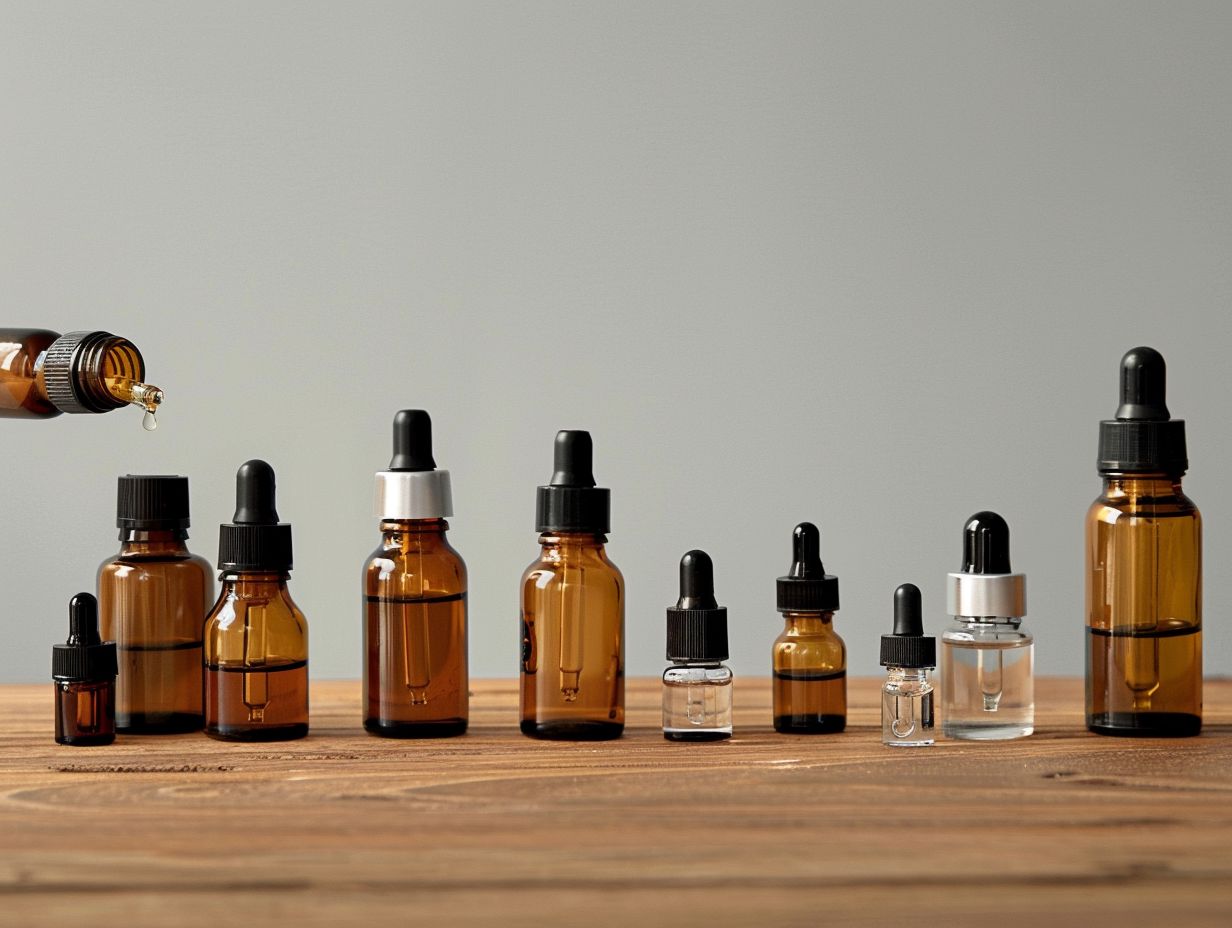
One of the key advantages of CO2 extraction is its ability to produce oils that are free from solvent residues, ensuring purity and quality. This method allows for the preservation of delicate compounds like terpenes, which contribute to the fragrance and therapeutic properties of the oils.
These high-quality oils find widespread use in the food industry as natural flavorings, providing a pure and intense taste profile. In the cosmetics sector, these floral essential oils are valued for their natural skincare benefits and aromatic properties, meeting the demand for clean beauty products.
This innovative extraction technique aligns with industry standards for quality assurance and sustainable practices, catering to the increasing consumer preference for natural and organic ingredients in products.
Maceration
Maceration is a versatile method used to infuse oils with plant materials to extract their scents and unique properties. This process enhances the shelf life of oils and creates unique aromatic blends.
During maceration, the plant materials are soaked in a carrier oil for an extended period, allowing the oil to absorb the essence of the plants. The slow infusion process ensures that the oils capture the full range of beneficial compounds from the botanicals. This method is highly customizable, as different combinations of plants can be used to create a wide array of scents and therapeutic benefits.
What Are The Uses Of Essential Oils?
Essential oils have a wide range of uses, including aromatherapy, skincare, haircare, cleaning products, and natural remedies. These oils are valued for their therapeutic and antibacterial qualities, derived from their unique compounds and aromatic characteristics.
One of the key benefits of essential oils is their ability to promote relaxation and reduce stress levels when used in aromatherapy. The aromatic compounds in these oils can also help improve skin health by balancing oil production and soothing irritations.
Tea tree oil, for example, is known for its powerful antibacterial properties and is commonly used in skincare products to combat acne and other skin issues. When added to haircare products, such as shampoos and conditioners, essential oils like lavender or peppermint can nourish the scalp and promote hair growth.
Aromatherapy
Aromatherapy is a popular application of essential oils for promoting holistic wellness and relaxation. The purity of oils and their volatile nature play a crucial role in their medicinal applications during aromatherapy sessions.
Essential oils are extracted from various plants, flowers, and herbs, each with its own unique therapeutic properties. These oils are highly concentrated, requiring dilution before use to ensure safe application. When inhaled or applied topically, the volatile compounds in essential oils interact with the body’s olfactory system, triggering responses that can promote relaxation, alleviate stress, and even support physical healing.
It is essential to source high-quality, pure essential oils for effective aromatherapy. Oils that are adulterated or diluted can lose their potency and therapeutic benefits. For instance, lavender oil is renowned for its calming effects, making it a popular choice for promoting sleep and reducing anxiety when diffused or added to bathwater.
Skincare
Essential oils are commonly used in skincare products for their nourishing ingredients and numerous benefits. These oils have positive effects on the skin, such as moisturizing, soothing, and rejuvenating properties.
Each essential oil offers a unique blend of properties that cater to different skin types and conditions. For instance, lavender oil is well-known for its calming effects, making it ideal for sensitive or irritated skin. On the other hand, plant-based essential oils are prized for their antibacterial and acne-fighting abilities, perfect for those dealing with blemishes.
Oils like rosehip seed oil are rich in antioxidants, helping to protect the skin from environmental damage and promote a youthful complexion. These oils not only hydrate the skin but also enhance its overall health and appearance.
Haircare
Essential oils play a vital role in haircare products due to their beneficial compounds and properties. These oils have positive effects on hair health, promoting strength, shine, and scalp nourishment.
Some of the most commonly used essential oils in haircare include jojoba oil, coconut oil, and argan oil. Jojoba oil mimics the natural oils produced by the scalp, making it excellent for moisturizing and balancing the scalp. Coconut oil penetrates the hair shaft, reducing protein loss and improving hair strength. Argan oil is rich in antioxidants, vitamins, and fatty acids, providing deep hydration and enhancing hair shine.
Cleaning Products
Essential oils are utilized in natural cleaning products for their antimicrobial properties and versatile applications. The concentration of these oils ensures effective cleaning and a fresh, natural scent in various household products.
In terms of creating natural cleaning solutions, certain essential oils stand out for their exceptional cleaning abilities. For instance, tea tree oil is renowned for its strong antimicrobial properties, ideal for disinfecting surfaces. Additionally, lemon oil is a popular choice due to its grease-cutting capabilities and refreshing aroma. Lavender oil not only adds a pleasant fragrance but also helps in calming and creating a relaxing environment during and after cleaning. By carefully blending these oils in specific concentrations, it is possible to tailor natural cleaners for different cleaning needs and preferences.
Natural Remedies
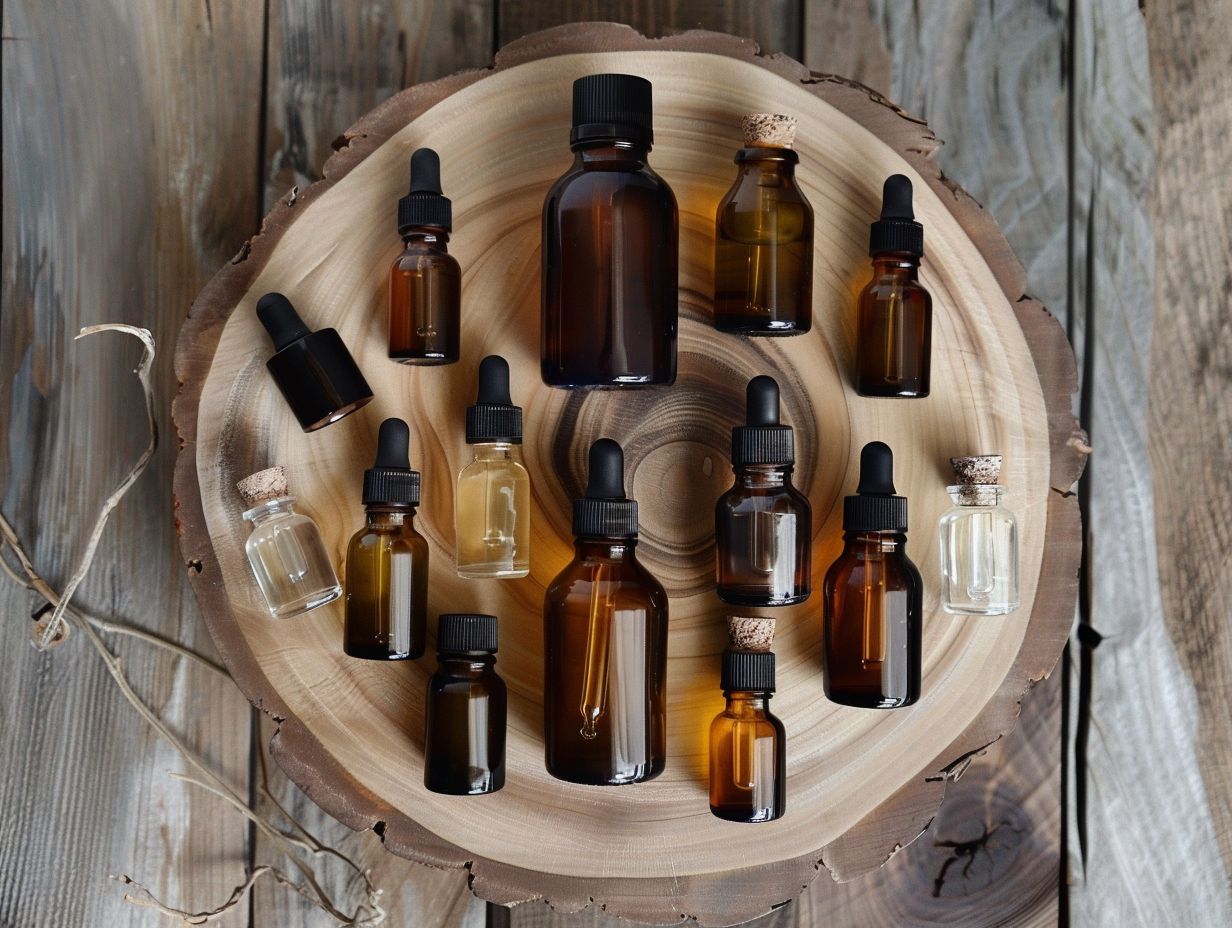
To harness these benefits, essential oils are extracted from various plant parts using methods like steam distillation, cold pressing, or solvent extraction. This careful extraction process ensures that the oils retain their beneficial properties and are free from impurities.
Incorporating essential oils into your daily routine can aid in boosting your immune system and improving respiratory health. For example, oils like lavender and tea tree have strong antibacterial properties that can help fight off infections and promote healing.
Are Essential Oils Safe?
Ensuring the safe use of essential oils involves considerations such as proper dilution, awareness of allergies and sensitivities, and understanding potential interactions with medications. These factors play a crucial role in maximizing the benefits and minimizing the risks associated with essential oil usage.
Proper dilution is key in using essential oils safely, as undiluted oils can cause skin irritation and other adverse reactions. It’s important to follow recommended dilution ratios depending on the purpose of use, whether for topical application, diffusing, or ingestion. Allergies and sensitivities must also be taken into account; individuals with sensitive skin or respiratory issues should perform patch tests before widespread use.
Interactions with medications can be a concern when using essential oils, especially for those on prescription drugs. Some oils may interfere with medication effectiveness or exacerbate side effects. Consulting with a healthcare professional before using essential oils can help navigate these potential risks.
Dilution
Dilution is a critical process when using essential oils to ensure their therapeutic properties are effectively delivered without causing adverse reactions. Proper dilution methods maintain the oils’ beneficial characteristics and minimize the risk of skin sensitivities.
When essential oils are extracted from plants, they are highly potent and concentrated, requiring dilution for safe application. The essence of dilution lies in finding the right balance between the oil and a carrier substance, such as a vegetable oil or lotion. This careful mixing not only ensures that the oil spreads evenly but also aids in preventing skin irritation and sensitivities.
An important aspect of dilution is understanding the concept of ‘drops’ and ‘percentages.’ Mixing precise percentages of essential oils with carriers allows for consistent and accurate dilution. Following dilution ratios recommended by professionals or resources ensures that the therapeutic benefits of the essential oils are preserved while reducing the risk of adverse reactions.
Allergies
Allergies to essential oils can occur due to individual sensitivities to specific components present in the oils. Understanding these applications and the purity of oils plays a key role in preventing allergic reactions and ensuring a longer shelf life for the products.
It is crucial to recognize that certain compounds in essential oils, such as limonene or linalool, can trigger allergic responses in some individuals.
Therefore, having an in-depth knowledge of the chemical composition of the oils you use is vital. Ensuring that the oils you purchase meet stringent purity standards is essential in reducing the risk of adverse reactions.
By opting for high-quality, pure essential oils, you not only safeguard against allergies but also maintain the integrity and efficacy of the products over time.
Sensitivities
Sensitivities to essential oils can manifest in various ways, ranging from skin irritations to respiratory issues. Understanding the effects of different compounds in oils and using natural products can help mitigate sensitivities and promote safe usage.
When considering essential oils, it’s crucial to be aware of the diverse chemical compositions present in these concentrated extracts. Compounds like terpenes, aldehydes, and phenols can trigger reactions in sensitive individuals. For instance, limonene, a common terpene found in citrus oils, may cause skin sensitivities in some users. By opting for organic oils free from synthetic additives, you reduce the risk of adverse reactions. Performing a patch test before widespread application can help identify potential sensitivities early on, ensuring a safer experience with essential oils.
Interactions With Medications
Essential oils have the potential to interact with medications due to their volatile and bioactive nature, affecting absorption rates and therapeutic outcomes. Understanding these interactions is crucial, especially for individuals in the medicinal and healthcare industry.
When essential oils come into contact with certain medications, they can either enhance or inhibit the drug’s effects, leading to unpredictable outcomes. For instance, some essential oils may increase the rate at which a medication is absorbed, potentially causing higher concentrations in the bloodstream and unintended side effects. On the other hand, interactions between essential oils and medications can also decrease the efficacy of a drug, rendering it less effective than intended.
What Are the Side Effects Of Essential Oils?
While essential oils offer numerous benefits, they can also have side effects if not used properly. Factors such as the purity of oils, their shelf life, and the uniqueness of scents can contribute to potential adverse reactions or sensitivities in some individuals.
Essential oil purity is crucial as adulterated oils may contain synthetic additives that can irritate the skin or respiratory system. Oxidized oils due to prolonged storage can lose their therapeutic properties and become potentially harmful.
The aromatic qualities of essential oils, including their intensity and complexity, can vary widely from one brand to another. Individuals with scent sensitivities may react differently to certain oils based on their chemical composition.
How To Use Essential Oils Safely?
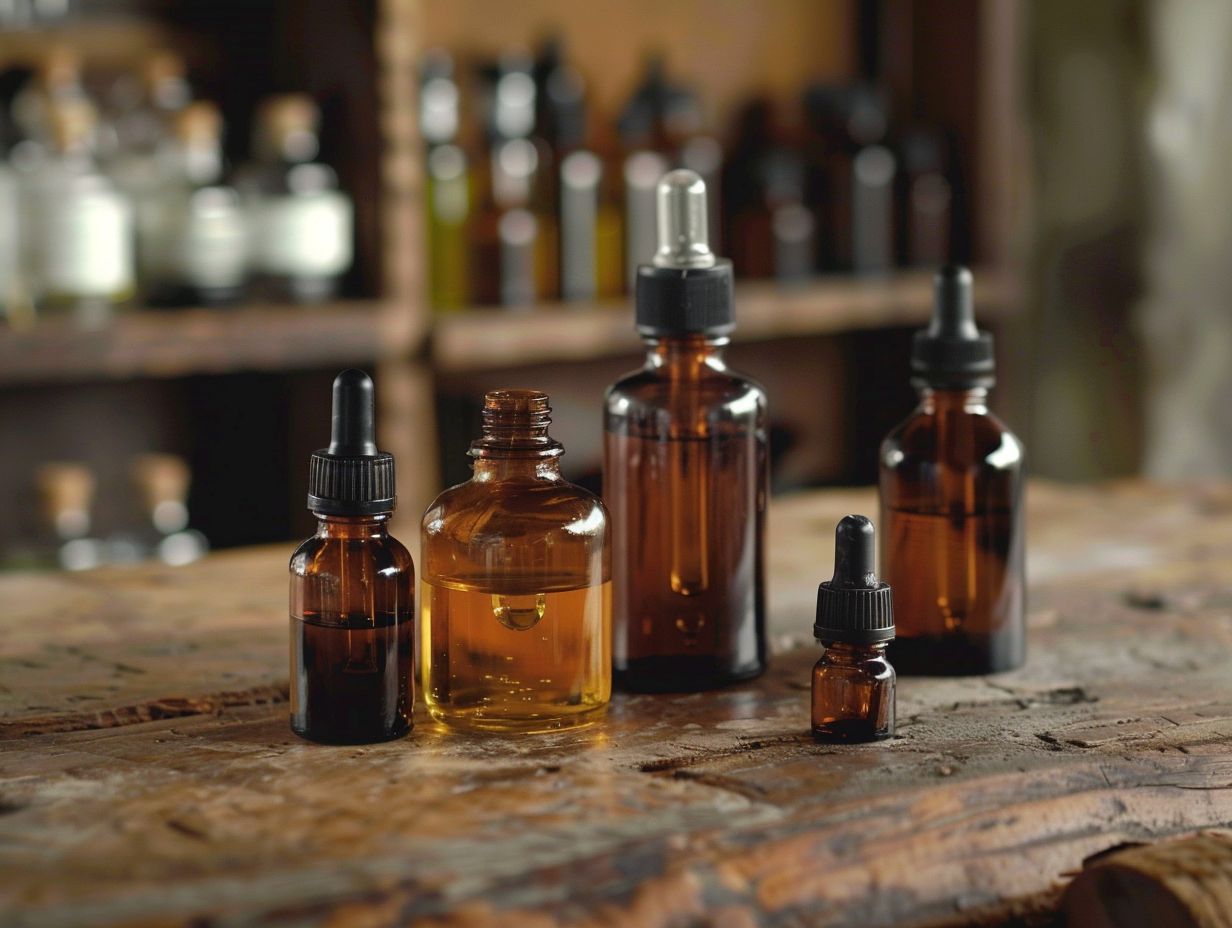
Safe usage of essential oils involves understanding their therapeutic and antibacterial qualities while considering the diverse compounds present in each oil. Following proper guidelines for dilution, application, and storage is essential to ensure safe and effective utilization of these potent plant extracts.
In terms of dilution, it is crucial to follow recommended ratios to prevent sensitivities or adverse reactions. Most essential oils should be diluted with a carrier oil like coconut or almond oil before direct application to the skin. Inhalation methods such as diffusers or steam inhalation can also be effective in reaping the benefits of antibacterial essential oils. Ensure proper storage by keeping oils in dark glass containers away from direct sunlight and heat to maintain their potency and effectiveness over time.
Frequently Asked Questions
Are Essential Oils Extracts?
Yes, essential oils are extracts from various parts of plants, such as leaves, flowers, stems, and roots.
What are essential oils?
Essential oils are highly concentrated, aromatic liquids that are extracted from plants through various methods, such as steam distillation, cold pressing, or solvent extraction.
Can essential oils be used for aromatherapy?
Yes, essential oils are commonly used in aromatherapy for their therapeutic benefits and pleasant scents.
Are essential oils safe to use?
Essential oils are generally safe when used properly, but it is important to dilute them properly and follow safety guidelines. Some essential oils may also cause skin irritation or allergic reactions in certain individuals.
What are some common uses for essential oils?
Essential oils have many uses, including as natural remedies for various health conditions, for household cleaning and disinfecting, in beauty and skincare products, and for creating pleasant scents in the home.
Are all essential oils the same?
No, different essential oils have different properties and uses. It is important to research and choose the right essential oils for your specific needs and to ensure that you are using high-quality, pure oils.


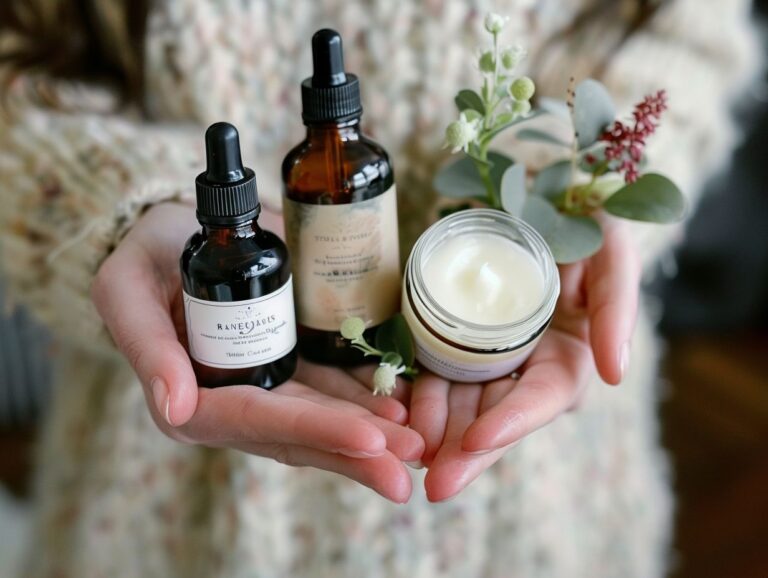
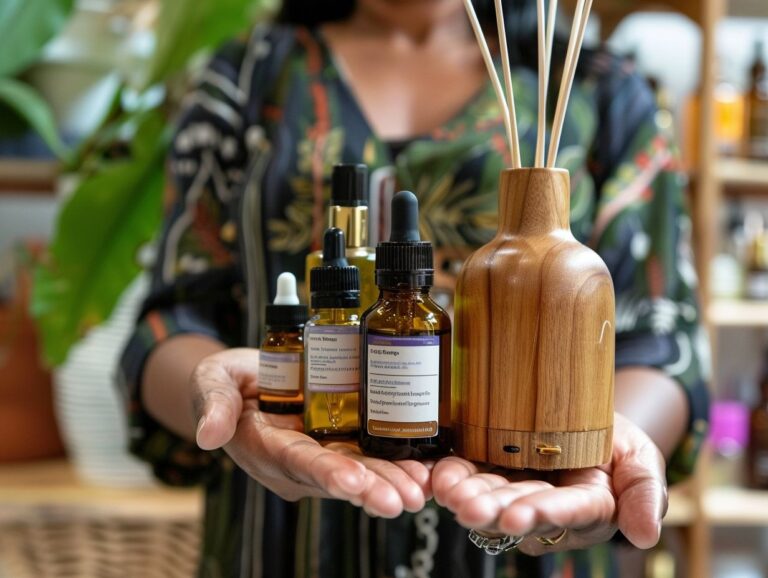

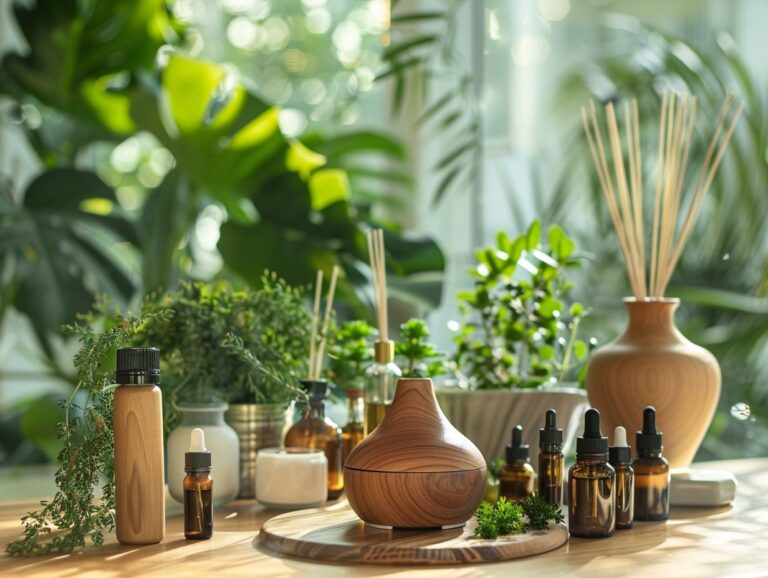


5 Comments